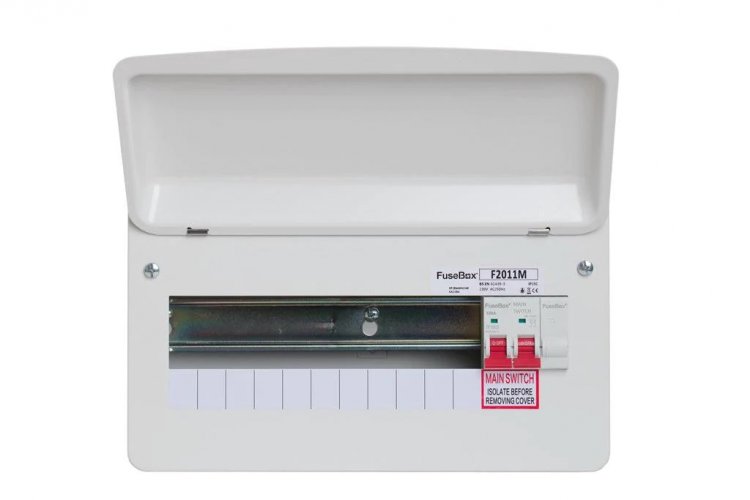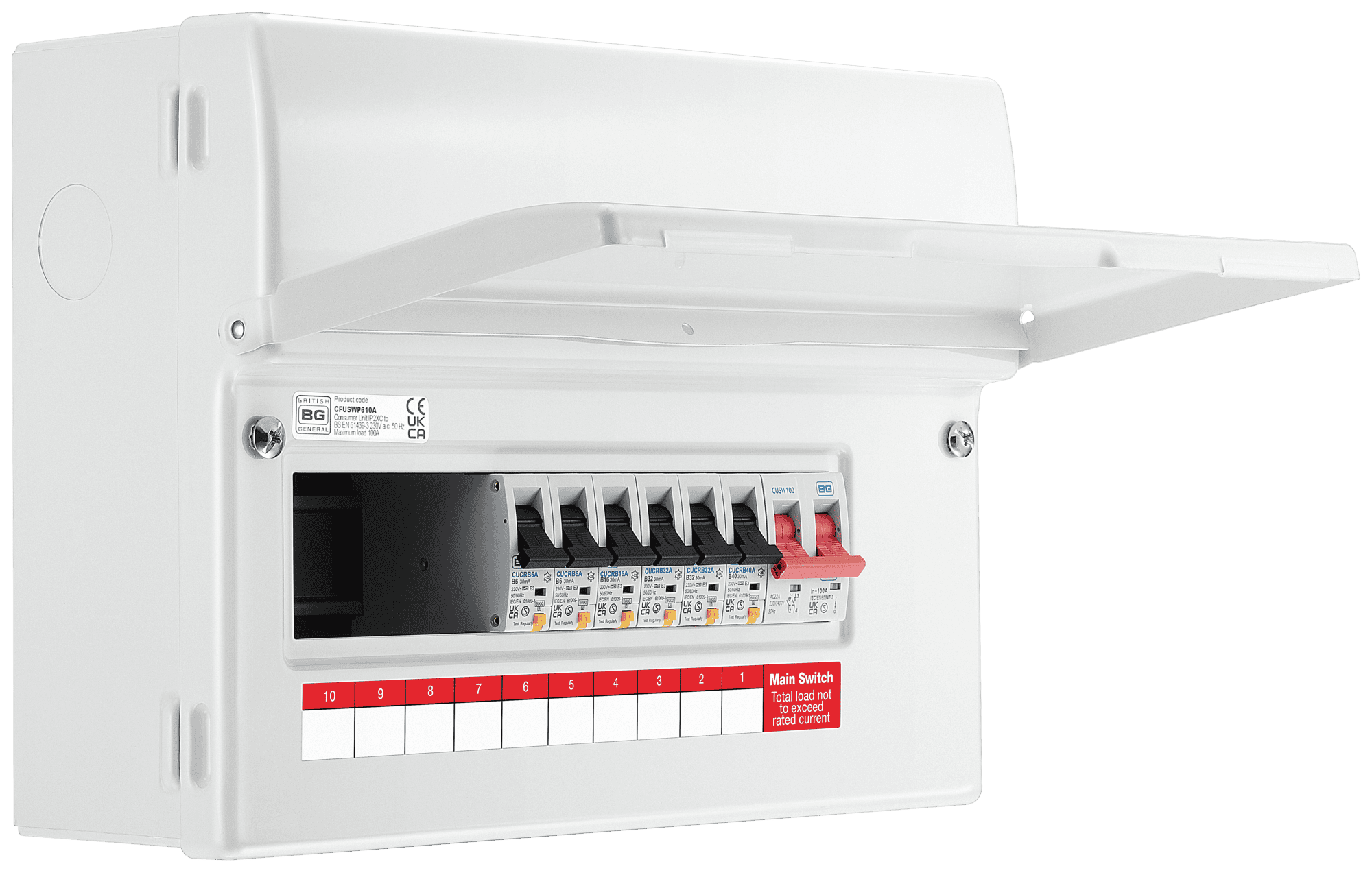The Role of Consumer Systems in Effective Energy Monitoring Systems
Consumer systems are integral to effective energy administration systems, functioning as the key circulation factors for electric power within frameworks. By including circuit breakers, they protect circuits from prospective overloads, therefore preserving safety and security and preventing comprehensive interruptions. The arrival of smart technologies has even more improved their performance, permitting real-time information surveillance and nuanced energy consumption analysis. This integration not only optimizes energy usage however also facilitates the unification of renewable resource resources, consequently advertising lasting methods. How, after that, do these innovations equate to substantial benefits in day-to-day power monitoring?
Understanding Consumer Devices

Comprehending the function of customer units begins with recognizing their necessary feature in protecting electrical systems. By isolating mistakes within certain circuits, consumer units prevent extensive failures and potential fire threats. This isolation is attained via making use of breaker that trip or integrates that impact when a mistake is detected, therefore reducing off the electrical circulation to the affected circuit.
In addition, consumer devices assist in the organized circulation of power, improving the effectiveness of power use. They enable for the methodical monitoring of electric loads, which can be especially crucial in commercial and business setups where need can change considerably. Appropriately kept customer systems add to the long life of electric systems and help in minimizing downtime brought on by electrical failures, eventually supporting the seamless procedure of energy-dependent facilities.
Smart Technologies Assimilation

A vital advantage of wise consumer systems is their capacity to leverage advanced formulas and artificial intelligence for anticipating analytics. This enables preemptive changes based on use patterns, weather prediction, and other variables, dramatically raising overall performance. In addition, clever customer systems facilitate need reaction programs, where energy use can be dynamically readjusted throughout height durations to maintain the grid and reduce costs.
The integration of renewable resource resources, such as solar and wind, is likewise structured through wise customer units. By intelligently handling the intermittency of these resources, these devices make certain a reliable and well balanced energy supply. In addition, smart consumer systems boost visit this site right here user engagement by supplying thorough insights and push-button control abilities with mobile applications, fostering an extra aggressive approach to energy conservation and sustainability.
Tracking Power Intake
Building on the abilities of smart technologies integration, monitoring power consumption comes to be a vital emphasis within energy management systems. By leveraging innovative metering facilities (AMI), real-time information on energy use can be accumulated at granular levels, providing beneficial understandings right into intake patterns and peak demand periods.
Smart meters and Internet of Points (IoT) gadgets play a crucial role in this monitoring procedure. These tools can track power usage in real-time, transmitting data to central systems for analysis.
The combination of these modern technologies not just equips customers with thorough details regarding their power use yet also supports utility companies in taking care of lots circulation better. Eventually, continual and precise monitoring is indispensable for achieving energy effectiveness, price savings, and sustainability objectives within power management systems.
Optimizing Home Appliance Use

One reliable approach includes identifying peak and off-peak hours to shift energy-intensive activities, such as washing or dishwashing, to times when power need is reduced. This not only minimizes pressure on the grid however also maximizes lower energy tariffs. Additionally, integrating equipment understanding formulas enables anticipating maintenance, making certain devices run at ideal effectiveness and extending their life expectancy.
Energy management systems can likewise include user-specific preferences and behaviors to customize device use schedules. Smart lights systems can change brightness based on occupancy and all-natural light accessibility, while Heating and cooling systems can keep comfort levels without too much power use.
Supporting Sustainability
Advertising sustainability within power management systems includes not just enhancing performance but additionally fostering environmentally liable methods. Consumer devices are important to this procedure, as they offer real-time information and control devices that allow customers to keep track of and minimize their energy intake. By leveraging advanced innovations, customer devices can recognize energy-saving opportunities and assist in the assimilation this website of renewable energy sources like solar and wind power.
One critical facet of promoting sustainability is informing consumers on the benefits of responsible energy usage. Via detailed insights provided by consumer units, individuals can make educated choices that lessen their carbon impact. These systems can suggest ideal times for operating high-energy home appliances based on grid demand and sustainable power accessibility, consequently minimizing reliance on fossil gas.
Furthermore, consumer devices sustain the fostering of smart grid modern technologies, which boost the general effectiveness and dependability of power distribution. By allowing two-way interaction between consumers and utility carriers, these systems can dynamically readjust to energy needs, reducing waste and promoting using sustainable energy techniques.
Verdict
Customer units, as essential components of power monitoring systems, considerably enhance electrical security and effectiveness within structures with circuit protection and wise modern technology assimilation. Real-time data surveillance and analysis facilitated by these systems enhance power usage and appliance use. Furthermore, the incorporation of renewable resource resources promotes lasting methods, adding to decreased total energy consumption and lower carbon impacts. Consequently, consumer devices play a vital role beforehand both power effectiveness and environmental sustainability.
Advances in smart technologies have transformed the capacities of energy administration systems, especially through the combination of smart consumer devices.Structure on the capabilities of wise technologies integration, checking energy intake becomes an important emphasis within energy management systems.Efficient device usage optimization is a crucial element of energy administration systems, aiming to boost effectiveness and minimize unnecessary energy consumption.Consumer devices, as indispensable parts of energy management systems, significantly improve electrical security and efficiency within structures with circuit security and wise technology integration. In addition, the unification of sustainable energy resources advertises sustainable practices, contributing to lowered general energy consumption and reduced carbon impacts.